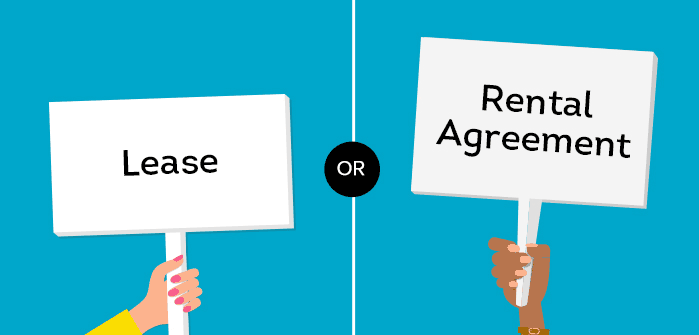To Rent or To Lease?
 A “rental agreement” or “lease”, has been a major subject of confusion for people, seeing as they are both used interchangeably. Most, are not sure what term to use and the situation to use it for. Before we state the benefits of each of the options available, we have to ascertain if they mean the same thing.
A “rental agreement” or “lease”, has been a major subject of confusion for people, seeing as they are both used interchangeably. Most, are not sure what term to use and the situation to use it for. Before we state the benefits of each of the options available, we have to ascertain if they mean the same thing.
Through a lease, the landlord and tenant sign a mutual agreement to fixed terms and conditions, such as the rent, rules, duration of the agreement, and so on. A rental agreement, by contrast, is a month-to-month agreement, in some countries, a yearly agreement. At the end of each 30 day or 12 month period, as the case may be, the landlord and tenant are both free to change the terms.
What are the differences?
The major difference between them is that the lease period is fixed and there aren’t changes that can be made by the landlord until that period is up. For instance, with landlord-tenant situations where the tenant is served an eviction notice, he or she is given 6 months to move out of the property – depending on the residential laws in that country. On the other hand, with lease agreements, there is nothing you can do as a landlord or tenant until the period is up.
Another bone of contention is who is responsible for the repairs of the property put up for rent. Generally speaking, the repairs for a leased property is the responsibility of the leaser as should be specified on the contract, while that of the rented property is the responsibility of the landlord and not the tenant; the landlord is responsible for all maintenance and repairs in the rental property.
How Long Does a Lease Last?
Leases are usually set for a long period, depending on the use of the property. While we might have some commercial properties being leased for more than 5 years, we can still find some residential properties being leased for 6 or 12 months. This varies depending on the agreed period on the contract. Because a lease is a contractual agreement, both parties are obligated to abide by it for the length of its duration. Payment must be made in a timely and consistent manner, usually at a date agreed upon by both parties and often, late payments are penalized as per the lease’s terms. On the other hand, the property owner cannot end the lease or change the conditions without the tenant’s (the lease payer’s) agreement.
In real estate, a written offer to enter a lease, is binding.
Leasing vs renting annually
When a lease expires, tenants are automatically shifted to a yearly rental agreement until both parties sign a new lease with a new expiration date or one or both parties back out of the lease agreement. In this scenario, tenants must generally abide by rules established in the initial lease.
Annual rental agreement come with major pros and con’s for both tenants and property owners. For tenants, rental agreements give them the freedom to move whenever is most convenient, without having to worry about transferring or breaking a lease agreement. For property owners, this makes rental income uncertain. To offset this uncertainty, many property owners choose to charge annual tenants a much higher rent than those who are on a lease.
In some instances, annual rental agreements are more common and leasing agreements not so common in cities with transient populations (e.g. Lagos). So, which would you rather do? would you go the common route of renting annually or lease?
